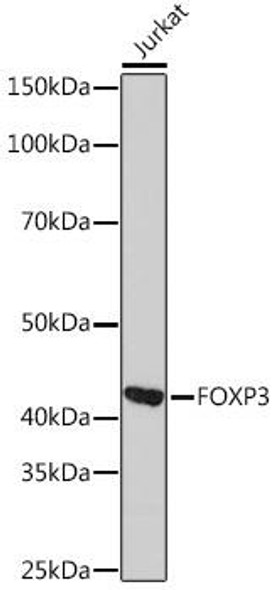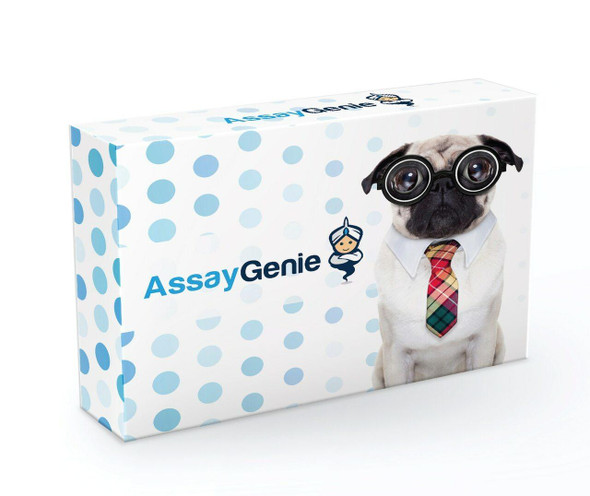APC Anti-Mouse Foxp3 Antibody [3G3]
- SKU:
- AGEL2484
- Product Type:
- Antibody
- Antibody Type:
- Monoclonal Antibody
- Applications:
- ICFCM
- Reactivity:
- Mouse
- Host Species:
- Mouse
- Isotype:
- Mouse IgG1, κ
- Clone:
- 3G3
- Conjugation:
- APC
Description
| Product Name: | APC Anti-Mouse Foxp3 Antibody [3G3] |
| Product Code: | AGEL2484 |
| Clone No: | 3G3 |
| Synonyms: | Forkhead box protein P3,IPEX,JM2,Foxp3 |
| Reactivity: | Mouse |
| Host Species: | Mouse |
| Applications: | ICFCM |
| Isotype: | Mouse IgG1, κ |
| Isotype Control: | APC Mouse IgG1, κ Isotype Control [MOPC-21] (AGEL2551) |
| Conjugation: | APC |
| Form: | Liquid |
| Fluorescent Label: | APC is designed to be excited by the Red (627-640 nm) laser and detected using an optical filter centered near 660 nm (e.g., a 660/20 nm bandpass filter). |
| Recommended Use: | Each lot of this antibody is quality control tested by flow cytometric analysis. The amount of the reagent is suggested to be used 5 µL of antibody per test (million cells in 100 µL staining volume or per 100 µL of whole blood). Please check your vial before the experiment. Since applications vary, the appropriate dilutions must be determined for individual use. |
| Storage Buffer: | Phosphate buffered solution, pH 7.2, containing 0.09% stabilizer and 1% protein protectant. |
| Swissprot: | Q99JB6 |
| Stability & Storage: | Keep as concentrated solution. Store at 2-8°C and protected from prolonged exposure to light. Do not freeze. Centrifuge before opening to ensure complete recovery of vial contents. This product is guaranteed up to one year from purchase. |
| Shipping: | Biological ice pack at 4°C |
FOXP3 is a 50-55 kD transcription factor, also known as Forkhead box protein P3, Scurfin, JM2, or IPEX. It is proposed to be a master regulatory gene and more specific marker of T regulatory cells than most cell surface markers (such as CD4 and CD25). Transduced expression of FOXP3 in CD4+/CD25-cells has been shown to induce GITR, CD103, and CTLA4 and impart a T regulatory cell phenotype. FOXP3 is mutated in X-linked autoimmunity-allergic dysregulation syndrome (XLAAD or IPEX) in humans and in 'scurfy' mice. Overexpression of FOXP3 has been shown to lead to a hypoactive immune state suggesting that this transcriptional factor is a central regulator of T cell activity. In human, unlike in mouse, two isoforms of FOXP3 have been reported: one (FOXP3) corresponding to the canonical full-length sequence; the other (FOXP3 δ2) lacking exon 2.




